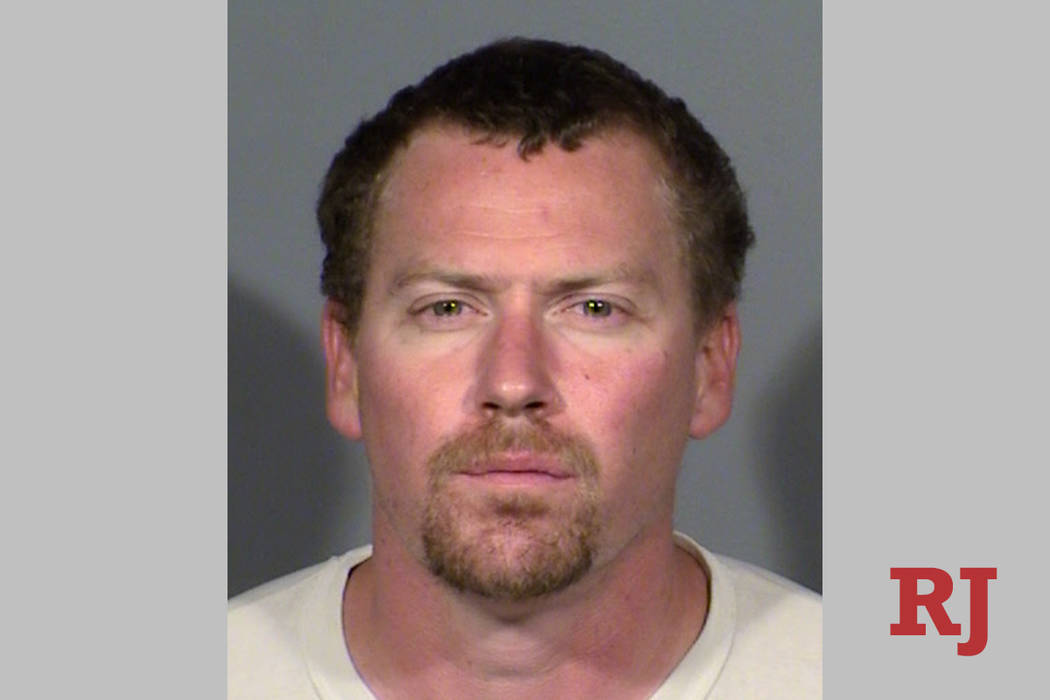Parents of slain Las Vegas toddler sue foster care system
A federal lawsuit filed this week on behalf of a toddler who died in the Clark County foster care system alleges that state and county officials routinely endanger the children they’re charged with protecting.
DaeVon Branon-Banks was taken from his parents, David Banks and Gabrielle Branon, in April 2017 after his mother was accused of driving while high with DaeVon in the car. The Clark County Department of Family Services placed him in a foster home.
In August 2017, 20-month-old DaeVon died from head injuries after his foster father, Craig Dickens, threw him across a room, police said. Dickens is serving a life sentence for the boy’s murder, and he and the boy’s foster mother, Diamond Ford, are defendants in the lawsuit.
The suit, filed by DaeVon’s parents, alleges that the heads of Clark County’s foster care system are aware of its deficiencies. It cited more than a decade of reviews and studies that found the services lacking, and claimed officials have not done sufficient work to improve them.
Defendants named in the lawsuit are Nevada Department of Health and Human Services Director Richard Whitley, Nevada Division of Child and Family Services Administrator Ross Armstrong, Clark County Manager Yolanda King and former Clark County Department of Family Services Director Tim Burch, as well as several caseworkers and supervisors.
Spokespersons for Health and Human Services and the county’s Family Services department said the agencies do not comment on pending litigation. A spokeswoman for Nevada Division of Child and Family Services said officials wanted to read the complaint before responding.
The 43-page lawsuit outlines several areas where it alleges “a deliberate indifference to the health and safety of the children” the defendants are obligated to protect.
DaeVon was placed in a home with “fictive kin” who, under Nevada law, are exempt from many of the requirements that licensed foster parents must meet, other than a criminal background check and verification that the home has fire and pool safety equipment.
“Fictive kin” refers to people who are not related by birth, marriage or adoption to a child but who have a strong emotional relationship with the child, like close family friends.
Federal regulations under the Social Security Act require that fictive kin meet the same standards as other caregivers.
The suit includes allegations that the state and county fail to provide foster caregivers background information on children’s health and behavioral history. It claims this leads to children in the system receiving poor medical and mental health care or being transferred between homes, causing more distress and lasting issues.
It also alleges that caseworkers are not adequately trained or supervised and are assigned overly large caseloads, contributing to a “crisis” within the system.
“Few Clark County caseworkers or their direct supervisors have a degree in social work or a license to practice social work in Nevada,” the suit states. “Many caseworkers are assigned caseloads before completing even the most basic training.”
DaeVon’s parents are seeking an undisclosed amount of punitive and compensatory damages. Attorney Stacy Perez, who filed the complaint, declined to comment. She said another lawyer will take over the case.
Contact Max Michor at mmichor@reviewjournal.com or 702-383-0365. Follow @MaxMichor on Twitter.


















